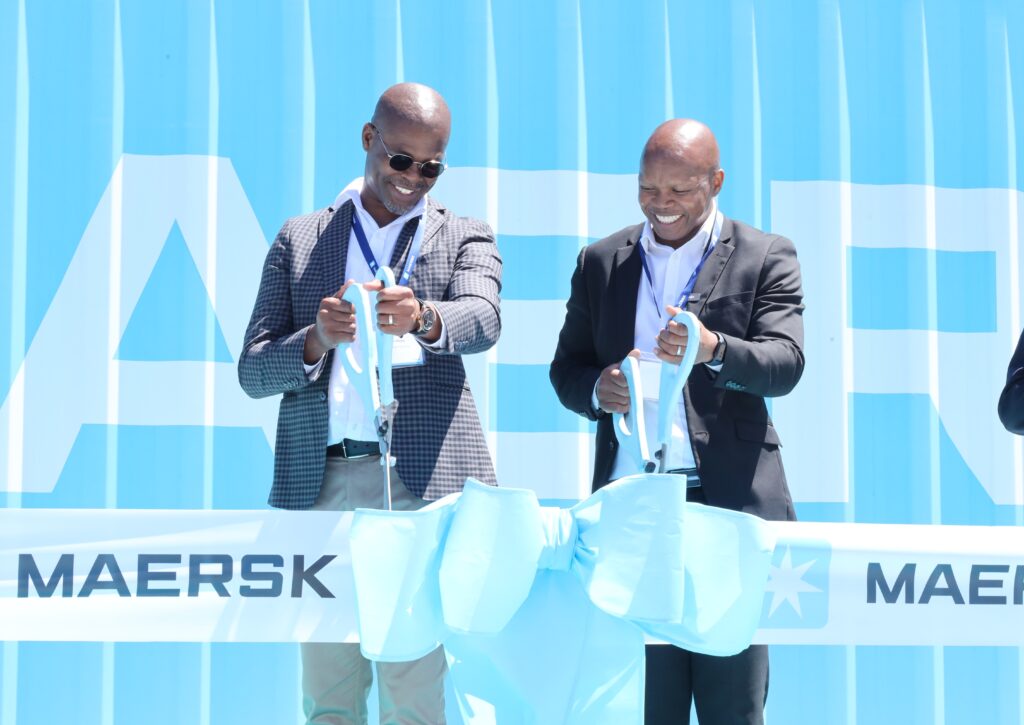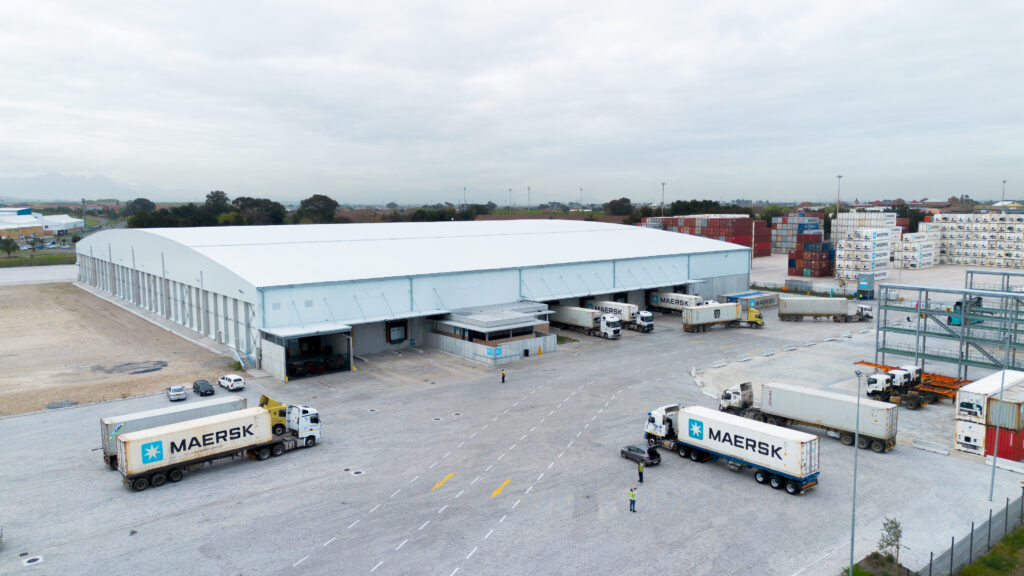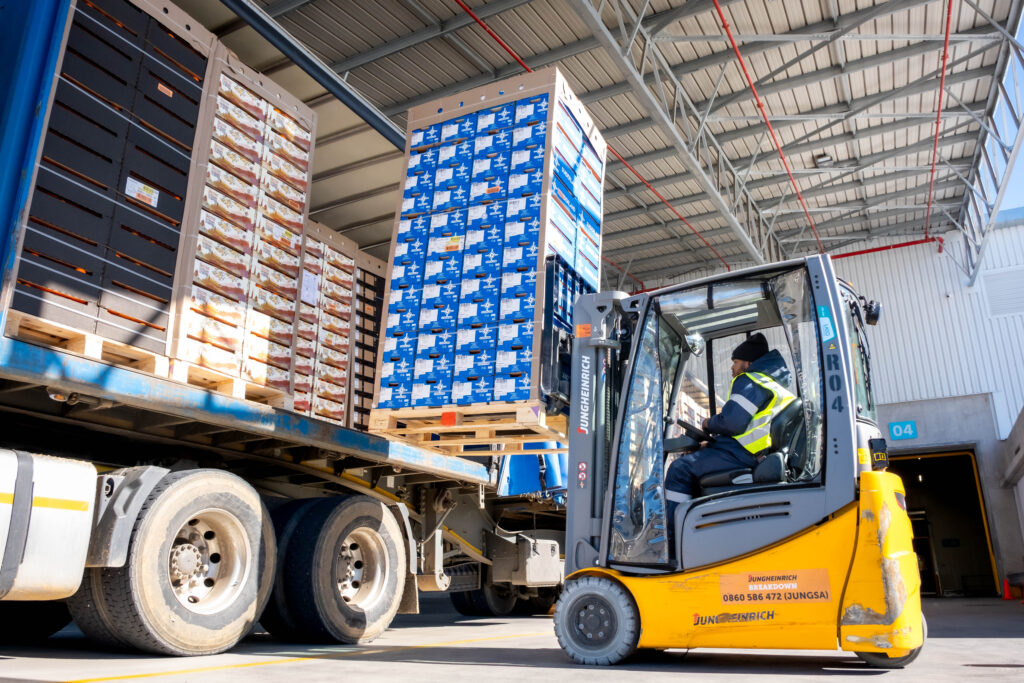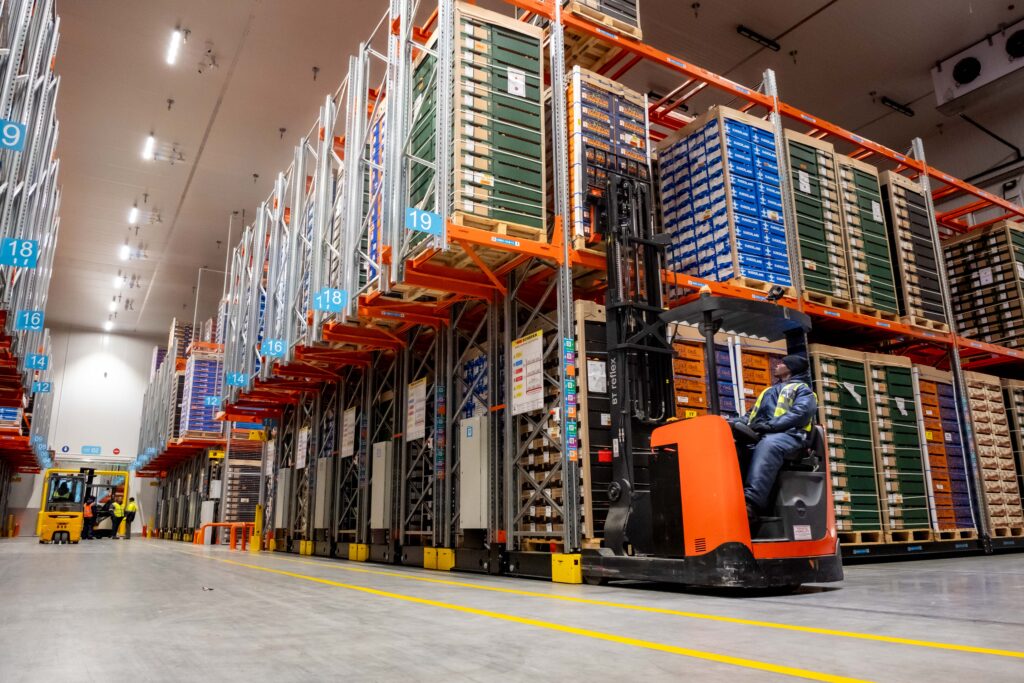South Africa’s cold chain logistics network has got a significant boost from offshore investment with Maersk formally opening its Belcon Cold Store facility in Cape Town bringing to US$100 million+ (± R1.72 billion) the total investment made by Maersk into enhancing South Africa’s perishables infrastructure and safeguarding billions in agricultural exports. It also eases pressure on the country’s road freight sector.
Reliable cold‑chain storage near major ports allows trucking operators to plan more efficient inland distribution, reduce delays and preserve the quality of temperature‑sensitive goods such as citrus, table grapes and other fresh produce. Maersk’s investment is also a clear signal that global logistics players see South Africa as a strategic node in the southern African supply chain.
With the inauguration of Belcon, Maersk now operates three world-class cold storage facilities in South Africa – Belcon, Cato, and PreCool. Together, these facilities form a comprehensive network designed to support the demanding cold chain logistics requirements of exporters, featuring:
- 32,000 pallet positions.
- Strategic proximity to the ports of Cape Town and Durban.
- Rail sidings and highway connections for seamless multimodal transport.
- On-site container depot for efficient cargo handling.
- Renewable energy systems to decarbonise supply chains.
The three facilities have already ramped up operations during the second half of 2025 and have delivered positive impacts to customers during the critical citrus season, ensuring product quality and reducing waste in the supply chain.
Closing the cold‑chain gap
Maersk Southern Africa & Islands Managing Director Lubabalo Mtya says the country’s cold-chain logistics market has experienced inconsistent performance leading to substantial losses for exporters of temperature-sensitive produce.
He cites the South African grape industry as one sector which has faced significant challenges with delays and “broken cold chains in logistics” costing this sector alone R1.5-billion annually.
“There was a clear need to strengthen South Africa’s cold chain infrastructure to minimise these losses and support the competitiveness of local exporters. The Belcon Cold Store directly addresses this critical gap in the market,” he says, adding that this new facility is part of Maersk’s broader investment into South Africa’s cold chain network, supporting the growth of perishable exports.
“We are continuously expanding our infrastructure to provide end-to-end solutions for customers in South Africa.”
End‑to-end logistics for exporters
Beyond storage, Maersk is emphasising its end-to-end service offer. “We are listening to our customers and implementing solutions that go beyond business as usual,” Mtya adds. The company provides consolidation, customs brokerage, terminal handling and both land and sea transport. For exporters, this integrated model reduces friction, lowers risk and ensures that produce arrives in optimal condition.
Renewable energy systems embedded in the new facility also support decarbonisation goals, reflecting a growing need for sustainable logistics practices.
A boost for South Africa’s export economy
For road freight operators, the new facility translates into better scheduling, fewer urgent shipments and reduced product loss during inland transit. For agricultural exporters, it means improved reliability, less waste and stronger access to global markets.
“Maersk has been invested and present in South Africa for over three decades, and our ambition has never been stronger. We are committed to building and delivering logistics solutions that create tangible value for our customers and their businesses, while contributing to South Africa’s economic prosperity and the livelihoods of its people,” concludes Mtya.
Editor’s comment: Maersk’s Cape Town investment underscores the critical role offshore logistics capital plays in strengthening South Africa’s supply chain. By anchoring reliable cold‑chain storage near ports, the company not only supports exporters but also benefits the local trucking industry by smoothing inland distribution.
For road freight operators, it is a reminder that infrastructure investment at the port and warehouse level can directly impact fleet efficiency, payload security and overall sector competitiveness. This facility sets a new benchmark for cold-chain reliability in southern Africa and highlights the growing intersection of export logistics, sustainability and fleet operations. Salute to Maersk.
Click on photographs to enlarge








